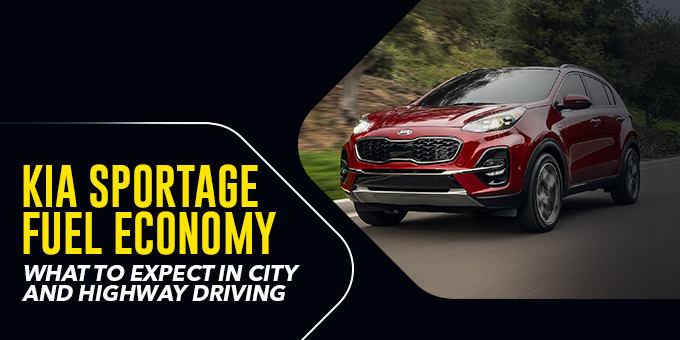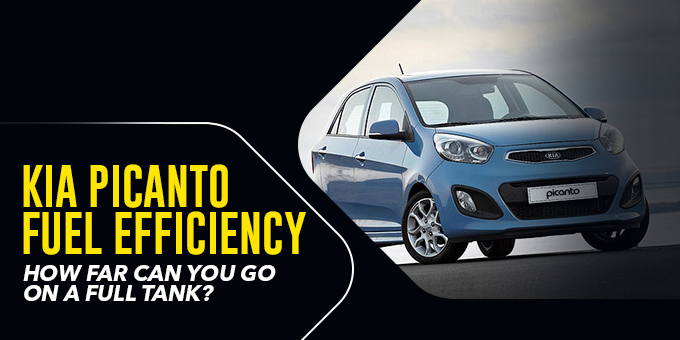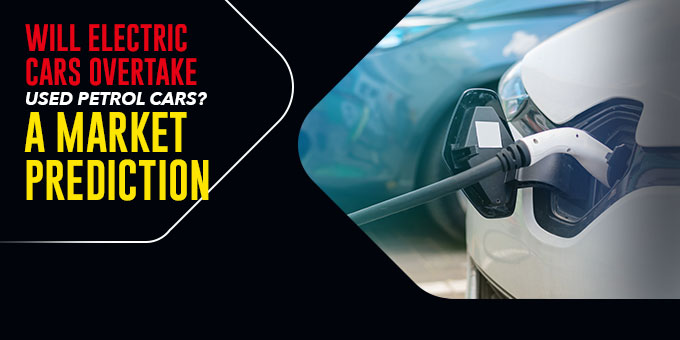When considering a new SUV, fuel economy plays a crucial role in the decision-making process. The Kia Sportage, known for its modern design, technology, and smooth performance, is no exception. Whether you're commuting through busy city streets or cruising on the open highway, understanding the fuel efficiency of the Kia Sportage can help you make an informed choice.
In this detailed guide, we’ll explore the Kia Sportage’s fuel economy in fuel economy both city and highway conditions. We’ll also discuss factors affecting mileage and share tips on how to maximize fuel efficiency.
Kia Sportage Fuel Economy Overview
Before diving into specific driving conditions, let’s take a quick look at the official fuel economy ratings of the Kia Sportage. Kia offers multiple powertrain options, including a standard gas engine, hybrid, and plug-in hybrid models. Each variant delivers different fuel economy figures, so choosing the right one for your driving needs is essential.
Here’s a breakdown of the estimated fuel economy ratings for various Kia Sportage models:
Gasoline Engine (2.5L 4-cylinder): Around 25 MPG in the city and 32 MPG on the highway
Hybrid Model (1.6L Turbo + Electric Motor): Approximately 42 MPG in the city and 44 MPG on the highway
Plug-in Hybrid (PHEV): Offers up to 34 MPG combined, with an electric-only range of around 34 miles
With these numbers in mind, let’s explore how the Kia Sportage performs in real-world driving scenarios.
Kia Sportage City Mileage: What to Expect
Fuel Efficiency in Stop-and-Go Traffic
Driving in the city often involves stop-and-go traffic, frequent braking, and idling at traffic signals. These conditions naturally put a strain on fuel economy because the engine works harder at low speeds.
For the gas-powered Kia Sportage, city driving yields approximately 25 miles per gallon (MPG). However, factors like traffic congestion, road conditions, and driving habits can impact actual fuel consumption.
On the other hand, the Kia Sportage Hybrid shines in urban environments. With an estimated 42 MPG, the hybrid system optimally balances power between the gas engine and electric motor, significantly reducing fuel consumption. If you do a lot of city driving, opting for the hybrid version could save you a substantial amount of fuel.
Factors That Impact Kia Sportage City Mileage
Several factors can influence the Kia Sportage’s fuel efficiency in the city:
Driving Habits: Aggressive acceleration and sudden braking waste fuel. Smooth acceleration and gradual braking help maintain optimal efficiency.
Traffic Conditions: Heavy congestion and prolonged idling reduce mileage. If you frequently encounter traffic, consider using Kia’s Auto Stop & Go feature, which temporarily shuts off the engine when the vehicle is stopped.
Vehicle Load: Carrying excess weight, such as cargo or passengers, forces the engine to work harder, lowering fuel economy.
Climate Control Usage: Running the air conditioning or heater can frequently increase fuel consumption.
Kia Sportage Highway Fuel Efficiency: Smooth and Efficient Performance
What to Expect on the Open Road
When driving on highways, vehicles generally achieve better fuel economy because they maintain a steady speed with fewer stops. The gas-powered Kia Sportage delivers around 32 MPG on highways, making it a solid choice for long road trips.
The Kia Sportage Hybrid, with its 44 MPG highway rating, offers even better efficiency. Thanks to aerodynamic design and optimized power distribution, hybrid models reduce fuel consumption significantly on longer journeys.
For those who opt for the plug-in hybrid model, highway fuel economy varies depending on whether you're driving in all-electric mode or relying on the gas engine. Once the battery charge depletes, the Sportage PHEV operates similarly to the standard hybrid model.
How to Improve Kia Sportage Highway Fuel Efficiency
If you want to get the most out of your Kia Sportage on the highway, consider these tips:
Use Cruise Control: Maintaining a constant speed reduces fuel consumption and prevents unnecessary acceleration.
Avoid High Speeds: Driving above 70 mph drastically reduces fuel efficiency. Sticking to moderate speeds maximizes mileage.
Proper Tire Pressure: Underinflated tires create more resistance, reducing fuel economy. Check your tire pressure regularly.
Limit Excess Cargo: The heavier your vehicle, the more fuel it consumes. Travel light whenever possible.
Aerodynamics Matter: Roof racks, cargo boxes, or open windows increase wind resistance and lower efficiency. Removing unnecessary external attachments helps improve mileage.
Comparing the Kia Sportage to Competitors
How does the Kia Sportage’s fuel economy stack up against other compact SUVs? Here’s a quick comparison:
Toyota RAV4: 27 MPG city / 35 MPG highway
Honda CR-V: 28 MPG city / 34 MPG highway
Hyundai Tucson: 25 MPG city / 32 MPG highway
Mazda CX-5: 26 MPG city / 31 MPG highway
As you can see, the Kia Sportage’s gas-powered model is on par with competitors, while its hybrid version outperforms most rivals in fuel efficiency. If maximizing mileage is your priority, the Sportage Hybrid is an excellent choice.
Final Thoughts: Is the Kia Sportage Fuel-Efficient?
All in all, the Kia Sportage offers a well-balanced mix of efficiency and performance. If your driving is primarily in the city, the Kia Sportage Hybrid provides outstanding fuel economy that helps you save on gas. On the highway, both the gas-powered and hybrid versions deliver respectable mileage, making them great for road trips and daily commuting.
Ultimately, your choice will depend on your driving habits. If you prioritize fuel efficiency, the hybrid or plug-in hybrid versions are the best options. However, even the standard gas model offers competitive mileage in the compact SUV category.
No matter which Kia Sportage model you choose, following good driving habits and regular vehicle maintenance will help you get the best fuel economy possible.
Looking for a fuel-efficient and stylish SUV? The Kia Sportage stands out as a strong contender, providing both comfort and great mileage for city and highway driving.




